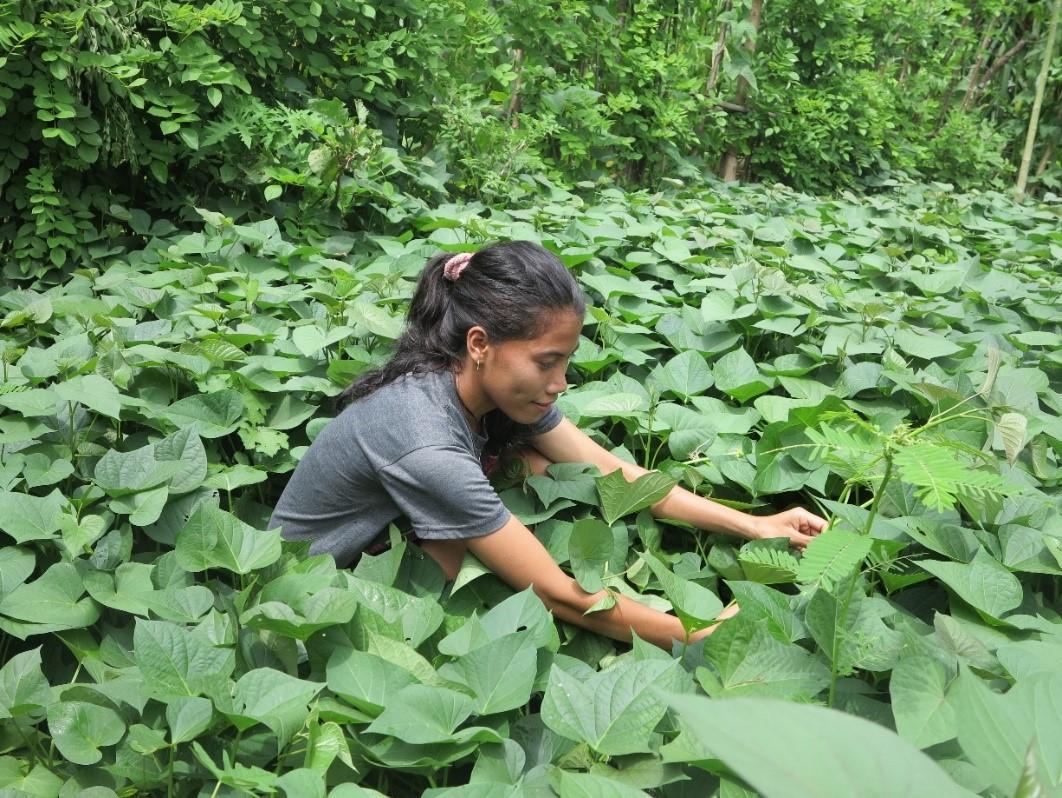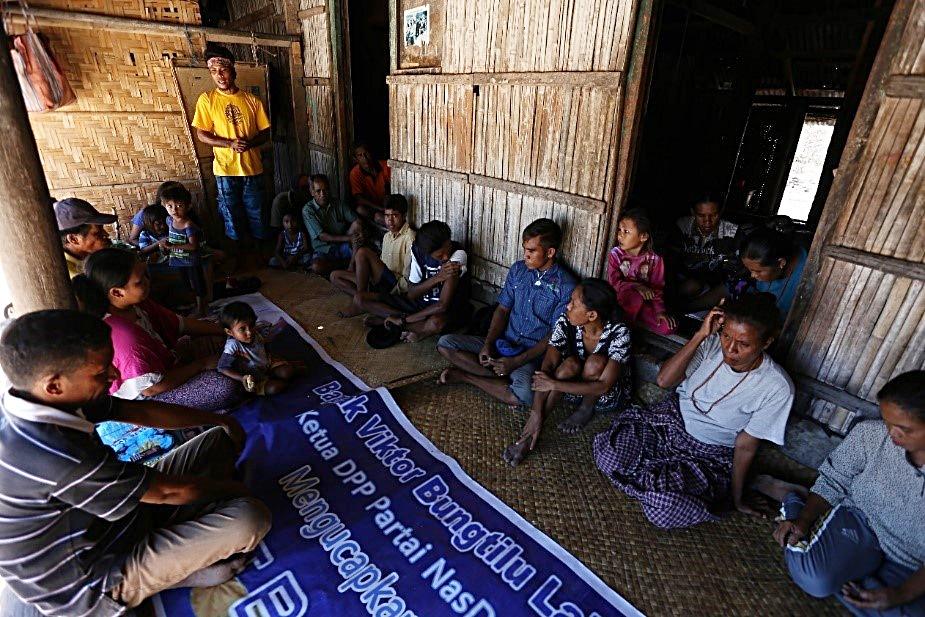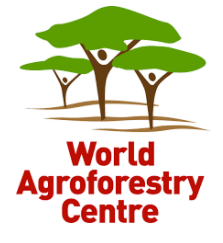Empowering Farmers, Sustaining Changes
Farmers on Sumba Island struggle through a nine-month dry season on degraded land. But they are committed to learning how to restore their island to its once verdant and productive state.
Sumba Island in East Nusa Tenggara province, Indonesia is possibly the driest area in the country. Unlike the humid tropical conditions of the main islands, such as Java, Sumatra and Kalimantan, Sumba has a dry season that lasts for nine months. Most of the island consists of upland savannah riven by deep gullies. In East Sumba, the Ministry of Forestry estimates that 80 percent of the land is in critical condition owing to most of its forest being felled before the turn of the millennium.
The Indonesian Rural Economic Development (IRED) project has been helping local communities rehabilitate their degraded land through farmer-managed natural regeneration and agroforestry. IRED is led by Wahana Visi Indonesia in collaboration with the World Agroforestry Centre (ICRAF) and Lutheran World Relief.
Direct experiential learning was the method preferred by farmers for gaining new knowledge so not only did IRED take Sumba farmers to meet their successful counterparts in neighbouring Sulawesi but also ran farmers’ agroforestry schools and trained a cohort of farmer-extensionists who could spread the new knowledge far and wide.
An agroforestry school is practical and participatory. The farmers were trained in cultivation techniques for crops, vegetables and sandalwood, making organic fertilizer, grafting techniques, and processing methods for various products. The schools included the establishment of demonstration plots, planted with species that were suitable for local conditions. Farmers were able to witness the changes in the plot and discuss it with others, which increased their knowledge and confidence.
Following the school, farmers were encouraged to become farmer-extensionists, agents of change who could spread knowledge more easily owing to sharing the same language, culture and experience. Seventy-six candidate, half of whom were women, were trained how to be trainers in April 2017. Eighteen farmers from nine villages were selected to become farmer-extensionists.
In March 2017, the leading farmers from Rambangaru, Praibakul, Kalamba, Mbatapuhu, Kadahang, Wunga, Napu, Matawai Pandangu and Prailangina villages conducted their first training session on cultivation of sandalwood, an iconic species endemic to the island, and established demonstration plots in their homegardens.
Nineteen-year-old farmer-extensionist Regina Rensi D. Deru from Mbatapuhu was a high-school graduate but, unlike her friends who planned to find jobs in the city, she wanted to stay in her village and become a farmer. She was eager to learn more, particularly, on pest and disease management, which was why she had joined the program.
‘Doing the training with IRED, I gained a lot of new knowledge and at the same time I became more confident. Usually in every session I led, I had 5–10 people who attended and although most of them were older than me, they listened to me seriously’, she said.
‘When planting, we used to put four-to-five seeds in each hole and often they did not grow well’, said another farmer-extensionist, Rawa Takandewa from East Wunga. ‘Now, we mix organic fertilizer with soil in the hole and plant only two seeds. Some farmers think that this new method is complicated and time consuming, so I asked them to monitor in the demonstration plot and see the results. For farmers, “seeing is believing”. I thought that if they saw that the new method was better they would be willing to switch’.
IRED will end in June 2018. The new farmer-extensionists are critical for ensuring that the knowledge shared among farmers, researchers and government officers will not be lost but continue to help restore Sumba’s barren landscape to productivity.
Read more about extension research in Sumba Timur (in Indonesian):
Martini E, Roshetko JM, Purnomosidhi P, Sabastian G. 2016. Kebutuhan penyuluhan agroforestri untuk rehabilitasi lahan di sumba timur, nusa tenggara timur, indonesia. The need for agroforestry extension for land rehabilitation in East Sumba, East Nusa Tenggara, Indonesia. Working Paper 231. Bogor, Indonesia: World Agroforestry Centre (ICRAF) Southeast Asia Regional Program. DOI: 10.5716/WP16077.PDF
Riyandoko, Mulyoutami E, Purnomosidhi P, Suryadi A, Ismawan IN, Hanggawali N. 2017. Petani menjadi penyuluh, mungkinkah? sebuah pendekatan penyuluhan dari petani ke petani di Kabupaten Sumba Timur. Farmers becoming extension workers, is it possible? An extension approach from farmers to farmers in East Sumba District. Working paper 260. Bogor, Indonesia: World Agroforestry Centre (ICRAF) Southeast Asia Regional Program. DOI: 10.5716/WP17145.PDF.
Edited by Rob Finlayson



